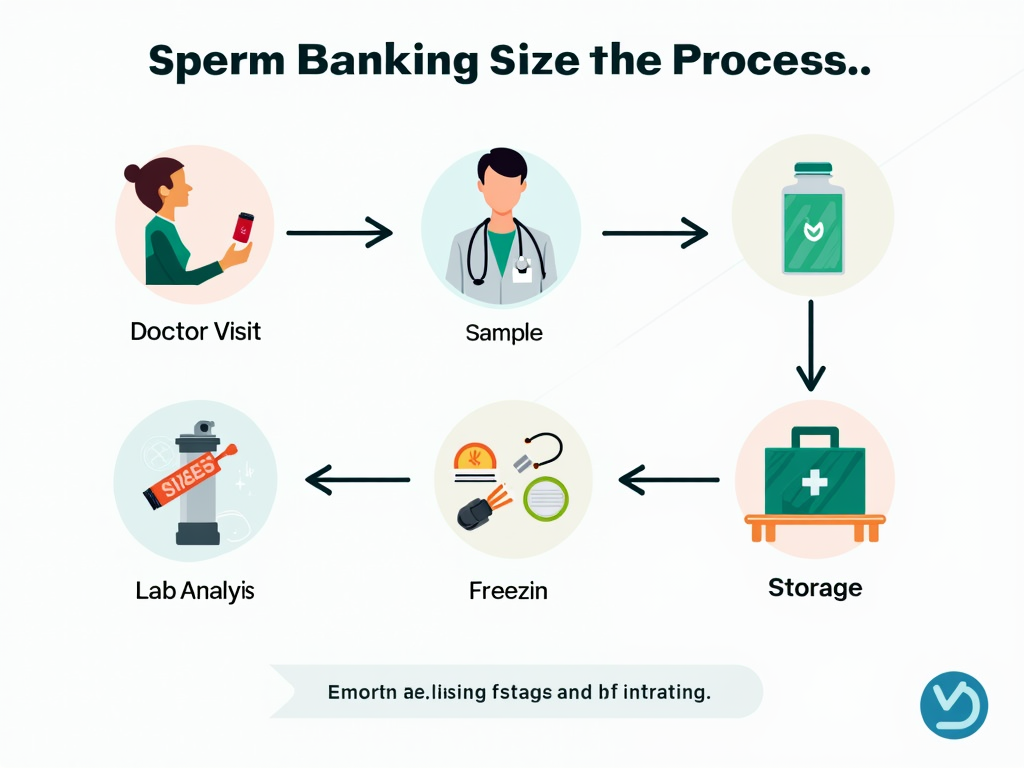Understanding Fertility Preservation Options: A Comprehensive Guide
March 23, 2025, 10:49 a.m.
Fertility preservation gives people a chance to have kids later in life, especially if they face treatments that might harm their ability to reproduce. Think cancer therapy or surgery. This article breaks down Understanding Fertility Preservation Options, spotlighting sperm banking and the legal considerations in sperm banking. It’s all about helping you plan ahead with clear, practical info.

Fertility preservation is a lifeline for many. It’s about saving your ability to have kids before something—like chemotherapy—takes it away. For men, sperm banking is the go-to method. You collect a sample, freeze it, and store it for later. It’s simple, effective, and widely used. People do it for medical reasons or just to keep their options open for the future.
Here’s how it works: You provide a semen sample, usually at a clinic. Experts check it for quality—things like sperm count and movement. Then, they freeze it with special techniques to keep it viable. Later, you can use it for things like artificial insemination or IVF. Some guys bank multiple samples to be safe.

The medical side of sperm banking is pretty straightforward. But the legal considerations in sperm banking? That’s where it gets tricky. You need to know your rights and plan carefully. Let’s break it down:
- Consent: You sign papers agreeing to the process. These say who can use the sperm and what happens if you can’t decide later—like if you pass away.
- Ownership: The sperm is yours, legally. But if you’re married or with a partner, you should clarify who controls it to avoid fights later.
- After Death: Want your partner to use your sperm if you die? You need to write that down clearly, maybe in a will. Without it, the bank might say no.
- Storage Rules: Banks have limits on how long they’ll keep your sperm. Check the terms so you’re not caught off guard.
- Money Matters: It costs to collect, freeze, and store sperm. Some insurance helps if it’s for health reasons—ask yours about coverage.
Talking to a lawyer who knows reproductive stuff can save you headaches.

Imagine this: Mike, a 28-year-old, learns he needs cancer treatment that could cause infertility. He banks his sperm, signs the basic forms, and starts chemo. Sadly, he doesn’t make it. His wife wants to use the sperm for a baby, but Mike never said she could after he died. The bank refuses. A simple note in his will could’ve changed everything. Stories like this show why legal planning matters in fertility preservation.
Don’t leave it to chance. Write down your wishes. Tell your loved ones. A quick chat with a legal expert can lock it all in.

Sperm banking isn’t the only way to preserve fertility, though it’s the easiest for men. Other options exist:
- Testicular Sperm Extraction (TESE): Doctors take sperm straight from the testicles if you can’t ejaculate it. It’s a surgery, but it works for some.
- Testicular Tissue Freezing: This one’s new. They freeze tissue with sperm-making cells—mostly for young boys before puberty.
Women have options too, like egg or embryo freezing, but those take more time and money. Here’s a quick look at them all:
| Option | Who It’s For | Effort | Cost | Success Odds |
|---|---|---|---|---|
| Sperm Banking | Men | Easy | Medium | High |
| TESE | Men | Medium | High | Depends |
| Tissue Freezing | Boys | Hard | Very High | Experimental |
| Egg Freezing | Women | Hard | High | Good |
| Embryo Freezing | Couples/Women | Hard | High | High |

Choosing fertility preservation isn’t just about medicine or law—it’s emotional too. Facing infertility risks can feel heavy, especially with a big diagnosis. Talking to a counselor or others who’ve been there can help you process it.
Some people bank sperm not for health, but for life plans—like waiting to have kids until they’re settled. Either way, knowing the legal side keeps you in control. And as science gets better, these options keep improving. Stay curious and ask experts what’s new.

To wrap up, Understanding Fertility Preservation Options means knowing your choices—like sperm banking—and the legal considerations in sperm banking that protect them. It’s about hope and action. Whether you’re facing treatment or just planning ahead, get the facts, talk to pros, and make your wishes clear.
Want to dig deeper? Check out these recommended readings below.